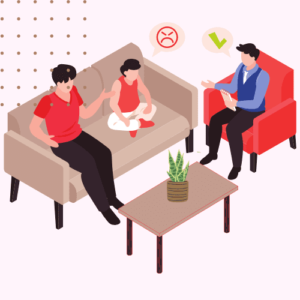
Jealousy For Women Test
Answer these simple questions to understand more about Jealousy For Women. We share instant results and keep your information confidential.

What is Jealousy For Women Test?
Jealousy is a complex emotion that can affect individuals of any gender. It typically involves feelings of envy or insecurity in response to a perceived threat to a romantic relationship, but there’s no specific test tailored exclusively for women. Assessing jealousy typically relies on standardized tools and questionnaires that apply universally to both genders. It’s essential to approach such emotions and their assessment with sensitivity, recognizing that jealousy can impact anyone, regardless of gender.
Who can benefit from this Jealousy For Women Test?
The Jealousy For Women Test can benefit women who want to gain insight into their emotional responses and behaviors related to jealousy. It is particularly useful for those who may struggle with feelings of insecurity or anxiety within their relationships. This test can help individuals identify the root causes of their jealousy, whether it’s due to past experiences, communication issues, or personal insecurities. By recognizing and understanding their jealousy patterns, women can work towards healthier and more secure relationships. Additionally, it can be helpful for those seeking guidance on how to manage and cope with jealousy in a constructive manner, ultimately leading to personal growth and stronger, more trusting connections with their partners.


Jealousy For Women Test Accuracy
The accuracy of a “Jealousy Test for Women” or any similar psychological assessment cannot be definitively established. Jealousy is a complex and subjective emotion influenced by individual experiences, personality traits, and cultural factors. While such tests may provide insights into one’s feelings of jealousy, they should be regarded as approximate indicators at best. Accuracy depends on the test’s design, reliability, and validity, which can vary significantly. It’s crucial to interpret the results cautiously and consider them within the broader context of a person’s emotional well-being and relationships. Seek guidance from a qualified psychologist for a more accurate understanding of jealousy or related emotions.
Types of Assessment to Measure Jealousy For Women Test
Self-Report Questionnaires:
The Multidimensional Jealousy Scale (MJCS): This scale assesses different dimensions of jealousy, such as emotional jealousy, cognitive jealousy, and behavioral jealousy. Participants rate statements based on their own experiences and feelings.
Scenario-Based Assessments:
Scenario-Based Interviews: Researchers present participants with hypothetical scenarios that may trigger jealousy (e.g., a partner talking to an attractive person). Participants’ responses and emotional reactions are analyzed to gauge jealousy.
Physiological Measures:
Skin Conductance Response (SCR): This involves measuring changes in skin conductance, which can indicate physiological arousal associated with jealousy. Increased arousal may be a sign of jealousy.
Behavioral Observations:
Observational Studies: Researchers directly observe and record jealousy-related behaviors, such as verbal expressions, non-verbal cues, or aggressive actions, in controlled or natural settings.
Projective Tests:
Thematic Apperception Test (TAT): Participants are presented with ambiguous images and asked to create a story around them. This can reveal underlying feelings of jealousy and insecurity through the stories they generate.
Implicit Measures:
Implicit Association Test (IAT): This assesses automatic associations between concepts (e.g., jealousy and self-esteem) by measuring response times to pairings of words and images. It can provide insights into unconscious or implicit attitudes related to jealousy.
Handling Jealousy For Women Test
Handling jealousy is important for anyone, regardless of gender. Jealousy can strain relationships and negatively impact your well-being. Here are 10 points to help women (and anyone else) manage jealousy:
- Self-Reflection: Acknowledge your jealousy and take time to reflect on its source. Understand why you’re feeling this way, as it can often stem from insecurities or past experiences.
- Open Communication: Talk to your partner or the person causing your jealousy. Honest and open conversations can alleviate doubts and misunderstandings.
- Trust Building: Work on building trust in your relationship. Trust is essential, and it’s vital to believe in your partner’s loyalty.
- Focus on Self-Esteem: Boost your self-esteem by engaging in activities that make you feel confident and self-assured. This can help reduce feelings of insecurity.
- Limit Social Media: Reduce exposure to triggers on social media that may worsen your jealousy. Unfollow or mute accounts that make you feel insecure.
- Practice Mindfulness: Mindfulness and meditation can help you stay grounded in the present moment and reduce anxiety about the past or future.
- Set Boundaries: Establish healthy boundaries in your relationship. Knowing what is acceptable and what isn’t can provide a sense of security.
- Support System: Lean on friends and family for emotional support and advice. They can provide a different perspective on your feelings.
- Jealousy Is Natural, but Manageable: Remember that jealousy is a normal emotion, and occasional feelings of jealousy are okay. It’s how you handle them that matters.
- Seek Professional Help: If jealousy is causing significant distress in your life or relationship, consider seeking the guidance of a therapist or counselor who specializes in relationships and emotions.
Remember that managing jealousy is an ongoing process, and it’s essential to be patient with yourself as you work towards a healthier and more secure mindset.